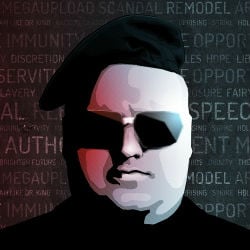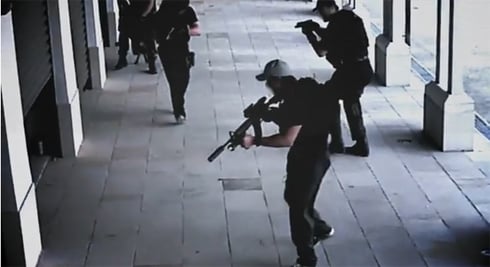Kim Dotcom Raid Warrants Legal, Court of Appeal Rules
Breaking
The New Zealand Court of Appeal has this morning
ruled that the search warrants used by police during the raid on Kim
Dotcom's mansion contained errors, but were valid. The decision, which
found that a "reasonable" person would understand what the warrants
related to, overturns an earlier ruling that found the documents lacked
specificity. Dotcom and his legal team are expected to take their case
to the Supreme Court.
 January 2012, New Zealand police carried out the largest ever action against individuals accused of copyright infringement.
January 2012, New Zealand police carried out the largest ever action against individuals accused of copyright infringement.Following allegations from the United States government acting on behalf of Hollywood, officers of STG, New Zealand’s elite counter-terrorist force, raided Kim Dotcom’s mansion, detaining the German-born businessman along with his wife and his children.
Adding momentum to mounting controversy, six months later a High Court judge found the warrants to be overbroad and therefore illegal. The decision was a huge boost to Dotcom’s fight against looming extradition to the United States.
This morning, however, the case has taken a new twist, with the Court of Appeal overturning the earlier High Court ruling that the warrants lacked specificity. Conceding that the warrants contained flaws, a panel of three judges found that overall the warrants were legal.
“[We] are satisfied that the defects in the search warrants have not caused any significant prejudice to the respondents beyond the prejudice caused inevitably by the execution of a search warrant,” the judges write in their ruling.
“In this case the practical consequences for the respondents must be assessed in light of the nature of the electronic items that were seized when the warrants were executed. Assessed in this way it is clear that..[..]..no more items were seized than would have been without the defects in the search warrants.”
In support of this assertion the judges note that despite police seizing more than 135 electronic items containing 150 terabytes of data, a number of electronic items, which the police concluded did not contain relevant evidence, were not seized.

“In our view a reasonable reader in the position of the recipients of the search warrants would have understood what they related to. This view is reinforced by the fact that Mr Dotcom was a computer expert who would have understood without any difficulty the references in the search warrant to his companies (Megaupload, Megavideo and Megastuff Ltd) and the description of the various categories of electronic items,” the judges write.
“The defects in these warrants were therefore not so radical as to require them to be treated as nullities..[..].. here there was no disconnect between what there were reasonable grounds to believe might be at the properties and what the warrant authorized the police to take. In other words, this really was a case of error of expression. The defects were defects in form not in substance,” the decision adds.
“We therefore allow the appeal in respect of the validity of the search warrants. These warrants are consequently valid,” the judges conclude.
However, the decision by the Court of Appeal does not go entirely in favor of the authorities. The data contained on the electronic devices seized in the raid was previously cloned by the police and sent to the United States, an act that was found to be unlawful in earlier proceedings. This morning the Court of Appeal upheld that conclusion.
“In our view the words of the Solicitor-General’s direction in the present case plainly did not authorize removal of the clones to the United States,” the ruling adds.
Kim Dotcom’s US-based lawyer Ira Rothken announced on Twitter that his team his currently analyzing today’s ruling by the Court of Appeal.
“Our @KimDotcom legal team is reviewing the rulings made by the Court of Appeal and will likely seek leave to appeal to the Supreme Court,” Rothken said.
Ahead of an extradition hearing currently scheduled for April, Dotcom took a swipe at US authorities and suggested that the fight would continue.
“The only party found to have committed piracy in the #Megaupload case: The FBI. Shipping my hard drives unlawfully to the US,” he wrote on Twitter.
“I’m not sorry that fighting back, getting up and being successful are encoded in my DNA. I’m happy I can support my family & challenge evil,” he said.



No comments:
Post a Comment